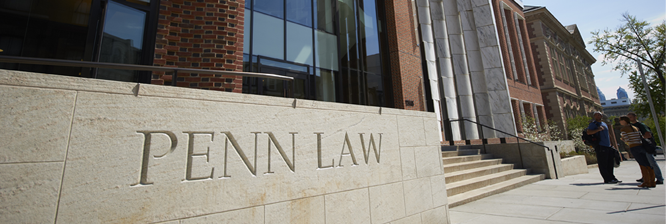美國法學院 選擇與各校特色
專訪常春藤賓州大學法學院招生委員University of Pennsylvania Law School Committee Member !

Question: How much time do you spend reading each application? Each essay?
Penn Law: The time that we spend reading each application varies widely. There are application on which I might spend twenty minutes; some that I will read two, three, even four times; and there are others that I will be able to read in ten minutes.
Question: What is an excellent personal Statement for Penn Law
Penn Law: Just tell us your story! We want to know your dreams, your challenges, your accomplishments, or your unique life experiences-what did you learn, how were you affected, how will you teach or affect others as a result….or what do you hope to learn, hope to teach, and so on? We want to know what you are going to add to our dynamic mix of students. Your resume, transcript, and references are going to tell us a lot about your course work and academic abilities, your work experience and your extracurricular and community activities. Do NOT rehash or repeat what we will learn from those materials
Question: If a personal statement is unimpressive but the student’s grades are great, what then? Is it possible for a personal statement to change your mind about a candidate?
Penn Law: A weak personal statement can kill an application, regardless of what the numbers are. Sometimes, we will hold or waitlist an applicant who has strong numbers but a weak personal statement to see whether he will “redeem” himself by submitting an additional essay or writing sample that is perhaps more revealing than the personal statement and knocks out socks off.
Question: what work experience do you require from the people reviewing applications? Are there any particular qualities that you look for in a reader?
Penn Law: Our readers include admission staff, faculty, third-year students, and typically one or two Penn Law School alumni. With regard to qualities we look for in a reader, our applicant pool is extremely diverse. Thus, as mentioned above, our readers include admissions professionals, faculty, and our own students and alumni who come from a broad range of backgrounds and are highly accomplished.
Question: if an element of the applications is marked “OPTIONAL,” is it truly optional? If a candidate opts not to complete that part of the application, is his or her candidacy weakened?
Penn Law: Penn Law School has an optional essay section in its application, and it is truly optional. We admitted numerous candidates who did not complete an optional essay. Thus, I would not say that omitting an optional essay weakens one’s candidacy; however, an optional essay can certainly strengthen an application that has an obvious weakness, for example, a low LSAT score or low cumulative GPA. Also, as I alluded to earlier, essays are used to distinguish strong candidates from one another. We make extremely difficult decisions. A genuine, well thought out, well-written optional essay can enhance an application and help the applicant stand out among many other strong applicants.
Question: If you had the option of doing away with personal statements altogether, would you?
Penn Law: Absolutely not! It is often the piece of the application that we use to distinguish strong applicants from one another. Personal statements bring the applicant to life. There is nothing more gratifying for me than skimming the personal statement of our incoming first-year students’ right before orientation to get a sense of the class. I am always amazed at the broad diversity of our students’ backgrounds, their rich experiences, and their accomplishments.
Question: Do applicants send extra material to you? If so, which materials are helpful? How much is too much?
Penn Law: Yes. Applicants who are placed on hold or on the waitlist often send additional letters of recommendation, an optional essay, and/or a writing sample. How much is too much? It depends. Applicants must, obviously, use some discretion. A good rule of thumb is one addition document, whether it be a letter, essay, or writing sample, for each communication from the law school. In other words, if a school waitlists you in March, send in an additional letter or essay shortly after receiving the waitlist decision. If the school later sends an update as to your waitlist status, for example, informing you in June that you are still on the waitlist and no final decision has been rendered, send a letter to the dean of admissions reiterating your interest in the law school and providing any updates to your record, for example, a job promotion, graduation honors, and so on. If a school keeps you on the waitlist, that means the school is still interested in you. It may be that additional offers are never made because those admitted students who have deposited at the school remain committed. But often, some of those students decide to defer law school, decide not to enroll, or make plans to attend another law school. You never know if and when you may be admitted from the waitlist; but as long as you are on a waitlist, the possibility exists. Demonstrate to the school your interest and commitment without being intrusive and burdensome.
學律留學顧問中心的團隊包括了美國執業律師 (JD),英國執業律師,外籍英語文學教授/Ph.D, 外籍語文學專家 等 (更多專業團隊介紹請至”學律團隊”閱讀)
學律留學已經成功替數百位的申請者成功錄取了許多美國/歐洲 頂尖學校 (包括Harvard, Stanford, Columbia, Oxford, LSE etc.)!
每一位的申請都由 學律顧問群 與申請者做一對一的深度討論,透過不斷討論,扣緊所有相關的文件與學經歷 共同 創造出 最佳的申請文件 (Application Package),申請到最理想的學校!


